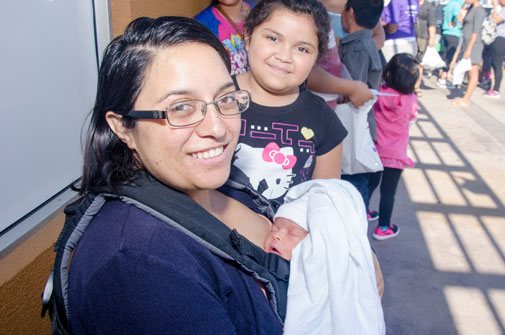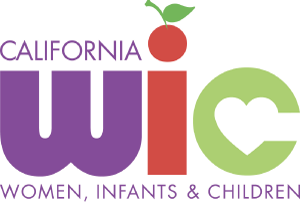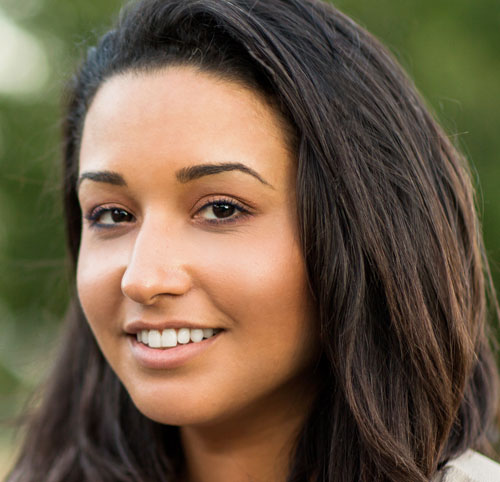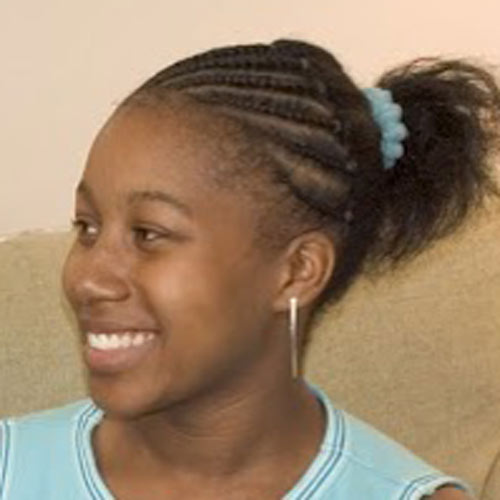
Your baby Your baby will keep changing and developing. We expect babies to do certain new things at certain ages. Each time she does something new, she is reaching a “developmental milestone.”
Developmental milestones Your baby will learn skills such as taking a first step, smiling for the first time and waving “bye bye.” As your baby grows, she will reach milestones in how she plays, learns, speaks, behaves and moves.
Every baby is different. Your baby may take longer than other babies to do something new. If you are concerned, talk to your baby’s doctor.
Your baby at birth
When your baby is a newborn, she already can do several things.
• She sees best now when things are only 8-12 inches away.
• She may recognize the scent of her own mother’s breastmilk.
• She probably brings hands close to her eyes and mouth.
• She may like people’s faces more than anything else she sees.
Your baby from 2 to 4 months
When babies are about 2 months old, they begin to smile at people. They try to look at their parents and pay attention to their faces.
Babies can calm themselves. They may bring their hands to their mouths and suck on their hands. During this time your baby may begin to be more aware of her surroundings.
• She may coo and make gurgling sounds.
• She may turn her head toward sounds.
• She may watch a person or pet move from one place to another.
• She may show you she wants to do something different by crying or being fussy.
Your baby from 4 to 6 months
When your baby is about 4 months old, she may smile when she sees a person she knows. Your baby may try to copy a person who is smiling or frowning. Your baby may start to play with soft toys.
• She may babble (make sounds as if she were speaking).
• She may show her feelings when she babbles and copy sounds she hears.
• She may cry in different ways to show she is hungry, or in pain or tired.
• She may let you know if she is happy or sad.
• She may reach for a toy with one hand.
• She may move her eyes from side to side when she sees something move.
• She may know who a person is when that person is far away.
• She may lift her head and hold her head up.
• She may roll over from her tummy to her back.
• She may hold a toy and shake it.
• She may bring her hands to her mouth.
Your baby from 6 to 8 months
When your baby is about 6 months old, she has developed many skills. Your baby probably knows familiar faces and may begin to know if someone is a stranger. She likes to play with others, especially her parents. You will notice your baby continuing to change.
• She may respond to other people’s emotions and often seem happy.
• She may enjoy looking at herself in a mirror.
• She may respond to sounds she hears by making her own sounds.
• She may babble and make sounds like: “ah,” “eh,” “oh.”
• She may take turns with you when you make sounds.
• She may turn her head when she hears her name.
Your baby from 8 to 10 months
When your baby is 8 months old, she may move around and get into everything! She may be strong enough to pull herself up to a standing position while she is holding onto a chair or sofa.
• She may be afraid of strangers.
• She may cling to adults she knows.
• She may have favorite toys.
• She may make many different sounds, like “mamamama” and “dadadadada”.
• She may copy the sounds and gestures of others.
• She may look for things when she sees you hide them.
• She may play peek-a-boo.
• She may put things in her mouth.
• She may move things from one hand to the other.
• She may pick up small things like pieces of cereal with her thumb and finger.
• She may get into a sitting position.
• She may sit without support.
• She may pull herself up to stand.
• She may crawl.
Your baby from 10 to 12 months
When your baby is about 10 months old, she may be holding on to furniture and walking. She may say “mama” or “dada”. She will probably have favorite things and favorite people.
• She may be shy or nervous with strangers.
• She may cry when her mom or dad leaves.
• She may put out her arm or leg to help you when you are dressing her.
• She may play games such as “peek-a-boo” and “pat-a-cake”.
• She may do what you ask.
• She may shake her head “no” and wave “bye-bye”.
• She may look at something that you name.
• She may copy the movements of your hands, face or arms.
• She may start to use things correctly. For example, drink from a cup.
• She may put things in a container, such as a box or pot or purse. And take things out.
• She may poke with her “pointer finger.”
• She may follow directions like “pick up the toy.”
• She may take a few steps without holding on.
• She may be able to stand alone.
Are you a WIC mom or dad? If your baby is a WIC participant and you are concerned about how she is developing, you can talk about your concerns with your WIC educator.


